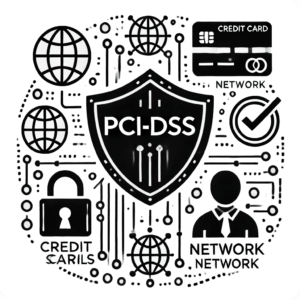Understanding PCI-DSS Compliance

Understanding PCI-DSS compliance is essential for keeping sensitive data safe and maintaining customer trust. PCI-DSS is a set of rules that organizations should follow when dealing with payment card data. One important part of PCI-DSS compliance is penetration testing. This means identifying possible weak spots in a system before they can be used for attacks. It helps uncover potential leakage points in the network, applications, and overall security systems of an organization. Regular penetration tests can help businesses meet PCI-DSS requirements and improve their safety measures. This reduces the risk of data breaches and helps safeguard customer information.
The Role of Penetration Testing in Cybersecurity
Penetration testing is vital for keeping organizations safe, especially when it comes to following security rules like PCI-DSS. By regularly doing penetration tests, businesses can find and fix any weak spots in their systems and networks before hackers can exploit them. This helps protect important information and makes sure companies are meeting PCI-DSS standards, which require strong security measures for payment card details. Penetration testing shows how well security measures are working, checks overall safety levels, and lets businesses fix any problems quickly. In a world where threats are always changing, penetration testing is key for boosting defenses, reducing risks, and keeping important systems and data safe.
Exploring the Importance of Penetration Testing in PCI-DSS Compliance
Prevention of Data Breaches
When it comes to meeting PCI-DSS compliance standards, penetration testing is really important. Basically, by regularly testing your systems for weaknesses, you can find and fix any vulnerabilities before hackers have a chance to exploit them. This not only helps you meet the PCI-DSS rules, but also stops data breaches from happening.
Penetration testing is like a practice run for cyber attacks, helping you see how secure your systems are and giving you ideas on how to make them even stronger. So, by doing penetration testing, you’re being proactive about protecting your sensitive data and avoiding the headache and expense of a data breach. For a more focused approach, consider network penetration testing to ensure your compliance with industry standards and strengthen your network security.
Ensuring Payment Security
When it comes to keeping payment information safe, meeting PCI-DSS compliance standards is crucial. External penetration testing is a key tool in finding any potential weak points in a system that hackers could use to steal important payment data. By regularly testing for vulnerabilities, companies can better protect themselves and their customers. This not only helps meet legal requirements, but also builds customer trust in the security of their transactions. Penetration testing gives businesses valuable information about any possible risks in their payment systems, allowing them to take action promptly and prevent data breaches.
Strengthening of Network Security
Penetration testing is important for businesses that handle payment card information to ensure they are following PCI-DSS regulations. Regular tests help identify and fix any weaknesses in security before they are exploited by hackers. This not only protects sensitive data and builds customer trust, but it is also required for PCI-DSS compliance. Through testing, companies can find and stop potential threats, improve their defenses, and show they are serious about keeping data safe. Investing in penetration testing is essential for better security and meeting rules and regulations.
The Process of Penetration Testing
Planning and Reconnaissance
Conducting penetration testing is important for companies that handle payment card information to meet security standards. The first step is planning what will be tested and how. Ethical hackers then gather information about the systems and networks to find vulnerabilities. This helps businesses fix security issues before hackers can take advantage of them, keeping customer data safe and meeting security standards.
Scanning and Gaining Access
In the world of cybersecurity, scanning and accessing systems are important steps in testing security to meet PCI-DSS standards. By checking networks and systems carefully, we can find weaknesses that could be exploited by cyber-attacks. This testing helps organizations identify any gaps in their security and fix them before they become a problem. Ethical hackers can also test whether security measures are working properly and suggest ways to improve cybersecurity. In the end, penetration testing is essential for meeting PCI-DSS standards and protecting against data breaches.
Maintaining Access and Analysis
Penetration testing is a vital process for protecting sensitive information and ensuring that companies comply with standards like PCI-DSS. It involves checking security systems to identify any vulnerabilities that hackers could exploit. Regular testing helps organizations stay safe from cyber attacks and maintain secure systems. By focusing on access control and thorough analysis during penetration testing, companies can prevent data breaches and strengthen their overall security.
Real-world examples of Penetration Testing in PCI-DSS Compliance
Penetration testing is like a security check-up that major retailers do to protect their customers’ payment information. By looking for weaknesses in their systems, they can prevent hackers from stealing data. A recent story about a popular retailer showed how regular security checks helped them keep their customers’ credit card information safe and follow important security rules. By finding and fixing problems in their computers, apps, and other technology, the retailer made sure that bad guys couldn’t break in and steal private information. This not only made their systems stronger, but also showed customers that they take security seriously. The story reminds us that security checks are crucial for stores that want to keep customer data safe and follow important rules.
Penetration testing is an important tool for financial institutions to make sure they are following the rules for keeping payment card data safe. In this case study, we look at how a top banking company used regular penetration testing to protect its payment card information and stay compliant with strict regulations. By doing thorough tests, the company found and fixed weaknesses in their network, software, and systems quickly, which stopped potential breaches and saved them from losing money.
The financial institution regularly tested its security to find and fix any weaknesses before they became a problem. This helped keep cardholder information safe and met security requirements. It also made customers and stakeholders feel more confident and secure.
Conclusion and Future Implications
Significance of Continuous Penetration Testing
Regular checks for security weaknesses, known as ‘continuous penetration testing’, is crucial in meeting important safety rules like the PCI-DSS regulations. Frequently running these tests helps businesses spot any potential weak spots in their systems or networks. In turn, this reduces the chance of a data breach and ensures the safety of customers’ information. By constantly checking and addressing possible security issues, businesses can stay ahead of online threats and keep their security strong.
Moreover, continuous penetration testing provides organizations with valuable insights into their security controls and helps them to fine-tune their cybersecurity strategies. It enables companies to detect and address security gaps in real-time, preventing potential security incidents and protecting their reputation. In today’s rapidly evolving threat landscape, continuous penetration testing is essential for staying compliant with PCI-DSS requirements and safeguarding sensitive data from malicious actors.
In today’s rapidly changing world of cybersecurity, penetration testing has become essential for businesses to meet PCI-DSS compliance. As cyber threats become more advanced and data security becomes a top priority, penetration testing helps identify weaknesses and fortify defenses against potential attacks. To protect customer data and follow PCI-DSS rules, companies must conduct regular and thorough penetration testing.
Looking ahead, the trend towards more stringent cybersecurity measures and regulatory requirements is expected to drive further adoption of penetration testing practices. Companies that prioritize proactive security measures, including regular penetration testing, are better positioned to mitigate risks, protect their assets, and enhance overall cybersecurity resilience in the face of evolving threats.
